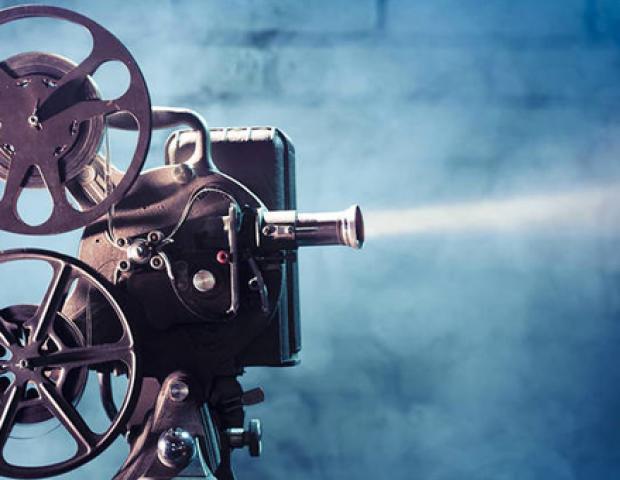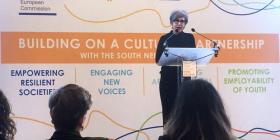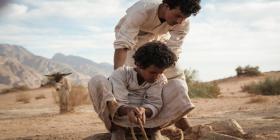ARTS AND THE WAY TO mutual understanding

"There is humanity in everyone, even in a serial killer. I feel that saying that some people lack humanity is not right," comments Amr Salama, author of Sheik Jackson, a film that tells the story of a strict Islamic imam - played by Ahmed Al-Fishawi - who goes through an identity crisis and struggles with his faith after the death of Michael Jackson in 2009.
"I know there are people with no empathy whatsoever but everyone has a human side to them. My purpose is to tell stories that humanises individuals rather than the opposite no matter the situation. In my movie, I refer to the book The Lucifer Effect which explains how people turn evil, and that every war or civil war started because someone dehumanised someone else. The other isn’t considered human. Therefore, in my film, I needed to do the opposite. I had to humanise the other whoever this other was. In Egypt, Salafists and homosexuals are considered the other and hence not humanised. A conservative woman would never humanise a prostitute, who in her turn would never humanise a religious figure. It’s one of the biggest challenges faced in our society."
Can film change people's minds? "It can change minds, hearts and give a new perspective in life other than just an insight about others," answers Salama. "This is one of the greatest values of the cinema. Every film changed me a lot. Asmaa - a story about a woman with HIV - changed the way I look at the others. Thanks to Excuse My French - a film about relationships between Muslims and Copts - I changed the way I see Christians. I have never had a Christian friend until I was 23 or 24. Sheikh Jackson is a film about identity and how you can accept different contradictions of yourself, which is an issue I was facing while I was making the film," concludes Salama.
Sheikh Jackson’s story, its author and protagonist are an excellent case study to look into how cinema and art can combat extremism.
For many years Al-Fishawy was on a quest to find his inner peace, a journey that took him through different detours in life and sometimes stood him at odds with his family. At 21 he integrated the Muslim Brotherhood. This path led to his progression towards Salafism. "I could have become a drug lord, but I became a fundamentalist because I thought this was the way to bring peace. It was hard, I used to wear the uniform, I used to attend classes in the Mosques and I really believed that this was the only way to paradise. Of course, it is not about how you dress or what you look like but I only realise that now. My parents feared that this new path would turn me into a terrorist. My uncle used to be part of a big terrorist organisation in the 1980s, who called people infidels, and made terrorist attacks, and then they left the country. He played a big role in that organisation; hence my parents were scared at the prospect that I could become like my uncle, my dad’s own brother. But my parents are actors and I had been confronted to culture and a variety of films through them during my childhood. Those films I had watched contributed to how my mind works. Through films, I was able to remain open to differences and explore other opinions and perspectives with tolerance and respect. I think that films from around the world can be a bridge enabling us to better know each other. We can understand other people’s way of living, how they act, how they feel, and the things that make them laugh and cry through a film shot in a specific country. Every film has this power. Films and their cultural richness probably saved my life," he confesses.
Al-Fishawi has no doubts that Sheik Jackson can play a big role in the Arab countries and beyond to fight radicalism and develop mutual understanding, "I think that when people watch this film abroad they appreciate it and they clap their hands whole heartedly. Indeed, they understand that even if my character is an Imam, this is a person who has feelings, he has a heart, he gets hurt and he too can cry. People look at him as a human being. Not just only as a stereotype. We shouldn’t judge people from their looks; just because someone has a beard, does not mean he is a terrorist. As much as we can’t judge on the basis of religion or colour or even nationality."
Can films help fight radicalisation and extremism? Many films address the issue of radicalisation, but perhaps one of the most relevant is Ridha Behi's Aleppo Flower, which tells the story of a courageous Tunisian mother who is going to fetch her son in Syria. Hind Sabry, who plays the lead role, is a star in the Arab world, but she remains grounded. "Our mission as artists is to move something that is stagnant. Saying that we can contribute to the fight against radicalisation may seem a bit pretentious, but we can open important debates and I'm sure this film did that."
According to Hind, culture is an essential mean to better understand others. Culture creates empathy and limits conformism. "There is a problem of conformity and conventionalism in the Arab world that stifles us," says the actress. "With 70% of people under 35, there is really a problem of individualism, nobody dares to say that he or she is different, nobody dares to say that he or she thinks differently, everyone wants to appear normal. I would like to say to young people "It's ok to be yourselves, you are not obliged to comply." Fortunately, there is a new wave of film directors fighting against this conformism, like Amr Salama and Mohamed Diab in Egypt. There are a lot of audiovisual works that feature characters that could never have been shown a few years ago, because they were too different," she adds. "Take this example. One of the taboo subjects in the Arab world is to talk about cancer. However, I played in a series that was broadcasted during the month of Ramadan. It was a series about cancer, a disease we generally avoid to talk about, and yet the series was incredibly successful, we received messages of love. Patients thanked us for giving them the strength to heal and rebuild, and the series changed the perspective of people, patients and their families with regards to the disease".
Cinema, is not the only antidote to fight extremism and radicalisation and promote mutual understanding. Alexandria-based El-Madina foundation, implemented "Street Carnival" a street-theatre initiative that aims to promote diversity and break stereotypes. Street Carnival, which was funded by the “Drama, Diversity and Development” project in the framework of Med Culture, a European Union programme, highlights the ability of the Nubian culture to integrate with the main Egyptian culture. The promoters trained artists and produced a collaborative tour of thirty performances presented in ten Egyptian cities. The performances tackled several social issues such as discrimination and sexual harassment against women.
This creative initiative aims to familiarise its audience with Nubians’ beautiful particularities, rather than tackling the issue of Nubians’ marginalisation. “For example, when it comes to the issue of sexual harassment, one that plagues Egyptian society in general, the performances seek to show how the Nubian culture does not suffer from that problem and reflects on the tolerance and lack of discrimination of Nubians’ culture,” Mohab Saber, executive manager of El-Madina and the director of the Street Carnival project explains. "Thanks to the Med Culture funding, we were able to export our methodology to other countries. We implemented the Carnival method in Egypt, Morocco and Palestine which proves that problems in different countries may have similar solutions," concludes Saber.
Another initiative funded by Med Culture, through the SouthMed CV project, is "We Are Here", implemented by Tunisian-based organisation Fanni Raghman Anni. We Are Here implemented alternative creative cells for the profit of vulnerable and discriminated young people and local communities in Tunisia and Palestine using mural and street arts. In Tunisia, the project contributed to the reconstruction of 10 cultural polyvalent spaces in schools and educational institutions located in poor marginalised interior regions. In Palestine the project established artistic, cultural and mural activities on the walls and in public spaces of the Old city of Ramallah. "The cultural cells will be at the service of marginalised and deprived young people and local communities," explains Asma Kaouech, the coordinator. "Our artistic approach is an effective tool to solve social problems and to restructure society according to the values of tolerance and citizenship. Through the project, we have been able to promote respect for marginalised groups and encourage their active participation in the society. Up to 2000 students benefit from each space created. Civil workshops promoting human rights and culture of peace are organised throughout the year", Kaouech explains.
Arts in general can play a great role in contributing to counter the development of extremist mentalities and radicalisation and promote mutual understanding amongst people of diverse backgrounds and affiliations. And though it is an effective, if not essential way to overcome smoothly stereotypes that feeds into extremist mentalities, culture’s potential is still often underestimated and neglected in our societies.







